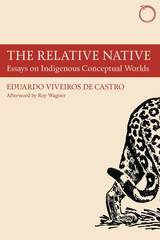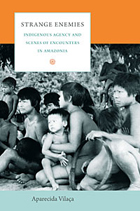
What it’s really like to be a parent in the world of higher education, and how academia can make this hard climb a little less steep
Academia has a big problem. For many parents—especially mothers—the idea of “work-life balance” is a work-life myth. Parents and caregivers work harder than ever to grow and thrive in their careers while juggling the additional responsibilities that accompany parenthood. Sudden disruptions and daily constraints such as breastfeeding, sick days that keep children home from school, and the sleep deprivation that plagues the early years of parenting threaten to derail careers. Some experience bias and harassment related to pregnancy or parental leave. The result is an academic Chutes and Ladders, where career advancement is nearly impossible for parents who lack access to formal or informal support systems.
In The PhD Parenthood Trap, Kerry F. Crawford and Leah C. Windsor reveal the realities of raising kids, on or off the tenure track, and suggest reforms to help support parents throughout their careers. Insights from their original survey data and poignant vignettes from scholars across disciplines make it clear that universities lack understanding, uniform policies, and flexibility for family formation, hurting the career development of parent-scholars. Each chapter includes recommendations for best practices and policy changes that will help make academia an exemplar of progressive family-leave policies. Topics covered include pregnancy, adoption, miscarriage and infant loss, postpartum depression, family leave, breastfeeding, daily parenting challenges, the tenure clock, and more. The book concludes with advice to new or soon-to-be parents to help them better navigate parenthood in academia.
The PhD Parenthood Trap provides scholars, academic mentors, and university administrators with empirical evidence and steps to break down personal and structural barriers between parenthood and scholarly careers.

This volume is the first to collect the most influential essays and lectures of Eduardo Viveiros de Castro. Published in a wide variety of venues, and often difficult to find, the pieces are brought together here for the first time in a one major volume, which includes his momentous 1998 Cambridge University Lectures, “Cosmological Perspectivism in Amazonia and Elsewhere.”
Rounded out with new English translations of a number of previously unpublished works, the resulting book is a wide-ranging portrait of one of the towering figures of contemporary thought—philosopher, anthropologist, ethnographer, ethnologist, and more. With a new afterword by Roy Wagner elucidating Viveiros de Castro’s work, influence, and legacy, The Relative Native will be required reading, further cementing Viveiros de Castro’s position at the center of contemporary anthropological inquiry.

During the 1940s and 1950s, white rubber tappers invading the Wari’ lands raided the native villages, shooting and killing their victims as they slept. These massacres prompted the Wari’ to initiate a period of intense retaliatory warfare. The national government and religious organizations subsequently intervened, seeking to “pacify” the Indians. Aparecida Vilaça was able to interview both Wari’ and non-Wari’ participants in these encounters, and here she shares their firsthand narratives of the dramatic events. Taking the Wari’ perspective as its starting point, Strange Enemies combines a detailed examination of these cross-cultural encounters with analyses of classic ethnological themes such as kinship, shamanism, cannibalism, warfare, and mythology.
READERS
Browse our collection.
PUBLISHERS
See BiblioVault's publisher services.
STUDENT SERVICES
Files for college accessibility offices.
UChicago Accessibility Resources
home | accessibility | search | about | contact us
BiblioVault ® 2001 - 2024
The University of Chicago Press









